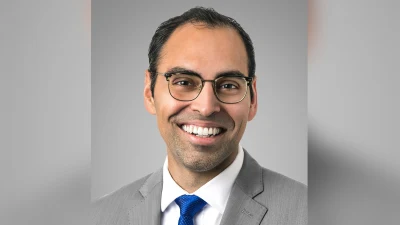Life advisers still in the game
For the second year in a row, dealer groups based around life and risk advisers continued to have a noticeable presence in theMoney ManagementTop 100 dealer’s survey.
The data, as compiled by Rainmaker, shows that the life office based dealers — AMP, AXA, ING, Garvan Financial Services, Royal & Sun Alliance and Zurich — account for 3,800 financial planners or 29 per cent, a figure which has held steady since last year’s survey.
Compare this with the total amount of planners in the Top 100 dealerships, at 13,264 this year. The presence of advisers working from life advisory style groups is still substantial, despite rumours that these types of advisers are on the decline.
However, as the distinction between life-based dealers and dealers based around financial planners fades away, is there any value in making such a distinction?
Rainmaker Information managing director Chris Page says the distinction is somewhat old-fashioned, as it was largely based around significant marketing differences which have all but disappeared.
Indeed, none of the life office based groups in this year’s Top 100 consider themselves life offices, but instead, fully fledged financial services groups.
The reason for this is due in part to the ramping up of skills and resources, which are necessary for licensing life advisers under the Financial Services Reform Bill (FSRB) that takes effect from next March.
Under the new single licensing regulatory system, life agents must become a registered agent or broker by obtaining their own licence or become an authorised representative of a single dealer group who becomes their licensee.
Analysts believe that it will be the latter option which will attract the majority of life agents, due to the expensive and detailed process and the issue of responsibility involved with getting their own licence.
As a result of this fundamental change in the nature of the industry, many dealer groups have already implemented changes to their models and incorporated life agents in preparation for the changes pending in the FSRB legislation.
These groups include Lynx, the new AXA arm Altus, Professional Investments Services (PIS) and Financial Services Partners.
In the last year, Top 100 figures for PIS have had a stellar rise, moving into second position from fifth, with the real change evident in planner numbers, jumping by 700 to more than 1,100.
AXA has seen the majority of previously tied life agents signing sole agency agreements. The sole agent can then become a proper authority of one of AXA’s three dealer groups — AXA Financial Planning, Charter Financial Planning, and the new Altus Financial Services.
AXA Financial Planning has held steady with around 600 planners and slipped one place into fifth position, while Charter has held onto ninth position with around 300 planners. Altus has entered the Top 100 for the first time at 69 with 26 planners.
Most of Lynx Financial Services’ 170 financial planners are from a life insurance and superannuation background.
That number is significantly higher than in the 2000 survey, which reported the group as having 23 advisers, which saw it come in at 73 out of the 100 groups. This year, with the growth of adviser numbers, Lynx holds the position of 25.
For its part, Australian Financial Services (AFS) came into being in March, 1997, as a co-operative of advisers. Since then, it too has reaped a measure of success, climbing to 34th place in the rankings, up from 45, with the current level of planners at 103, which is up by 40 from last year.
Despite these moves, not all life agents have been comfortable with several facets of FSRB. While they agree with a single regulatory body, they worry that the proposed model makes the regulatory policies for life agents increasingly complex, as life advisers will need to shift from agent contracts to proper authority contracts in order to continue distributing products.
At the same time, the moving of liability to the dealer along with new compliance measures will increase the cost of business.
Recommended for you
A record proportion of women have been appointed to ASX 200 boards in the March quarter, according to the latest Financy Women's Index.
Sydney wealth management firm Altus Financial has appointed a head of risk as the business strengthens its provision of risk advice.
A panel of ESG experts are urging advisers to lean on specialists to stay informed in a time of widespread misinformation and consider if they are right adviser to deal with clients’ ESG concerns.
The Coalition has announced a new shadow treasurer and minister for financial services, while Jane Hume will exit the shadow ministry.














